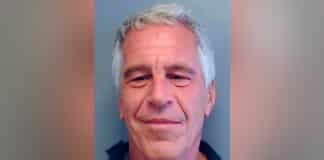“Texas law does not grant the state-agency executives named as defendants in this case any authority to enforce the Act’s requirements,” Justice Jeffrey Boyd wrote.
QUICK FACTS:
- Texas’s high court on Friday effectively ended a challenge by clinics to a state law that banned most abortions in Texas by ruling that state officials including those tasked with doctor licensing have no role in enforcing the law, Reuters reports.
- The Texas Supreme Court ruled that only private citizens, not state officials, can enforce the law known as the “Heartbeat Bill” (SB8) by suing anyone who performs or assists a woman in obtaining an abortion after about six weeks of pregnancy.
- “Texas law does not grant the state-agency executives named as defendants in this case any authority to enforce the Act’s requirements,” Justice Jeffrey Boyd wrote for the unanimous nine-member court on Friday.
- While the case now will return to the 5th U.S. Circuit Court of Appeals, during arguments last month, Marc Hearron, a lawyer for the clinics, said a ruling by the Texas court against them would “essentially end our challenge,” according to Reuters.
WHAT CRITICS OF THE “HEARTBEAT BILL” SAID:
- The clinics contend the law is unconstitutional under Roe v. Wade, the 1973 decision that made abortion legal nationwide, and that the conservative-leaning U.S. Supreme Court is now weighing rolling back or overturning in a Mississippi case, according to Reuters.
BACKGROUND:
- An Oklahoma bill that would prohibit a doctor from performing an abortion if a fetal heartbeat is detected passed the full Senate on Thursday, according to a local news outlet.
- Senate Bill 1503, authored by Senator Julie Daniels, R-District 29, does state, though, that if a medical emergency exists, an abortion can be performed, despite if a heartbeat is detected.
- “It requires the doctor to find a medical emergency and then define that emergency and make the notations, make a report of those findings,” said Sen. Daniels during the Senate Health and Human Services committee on February 21.





